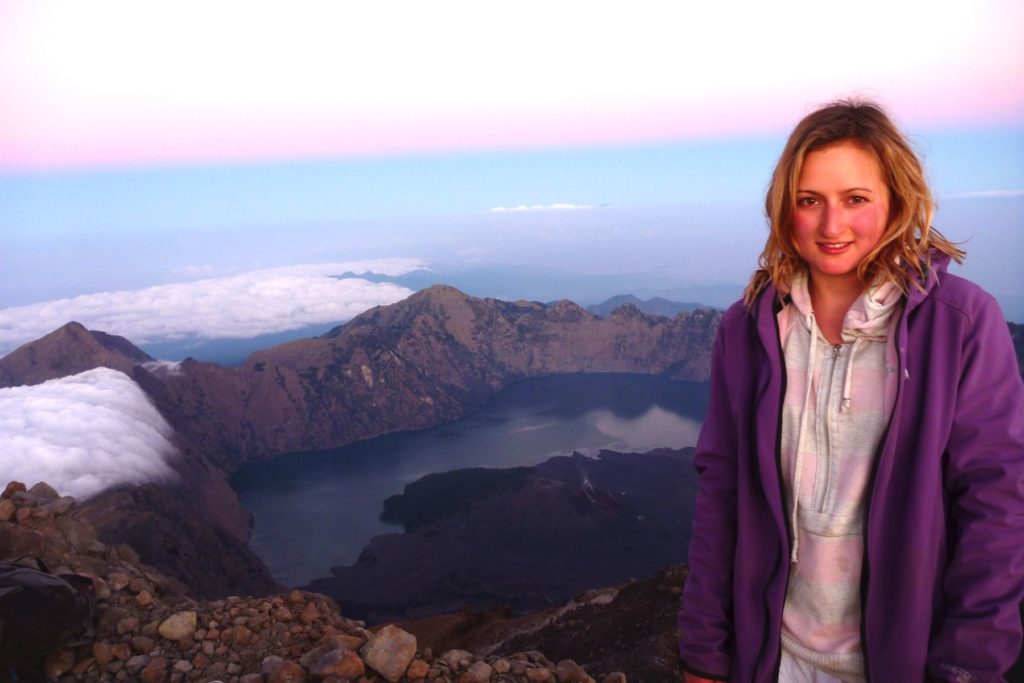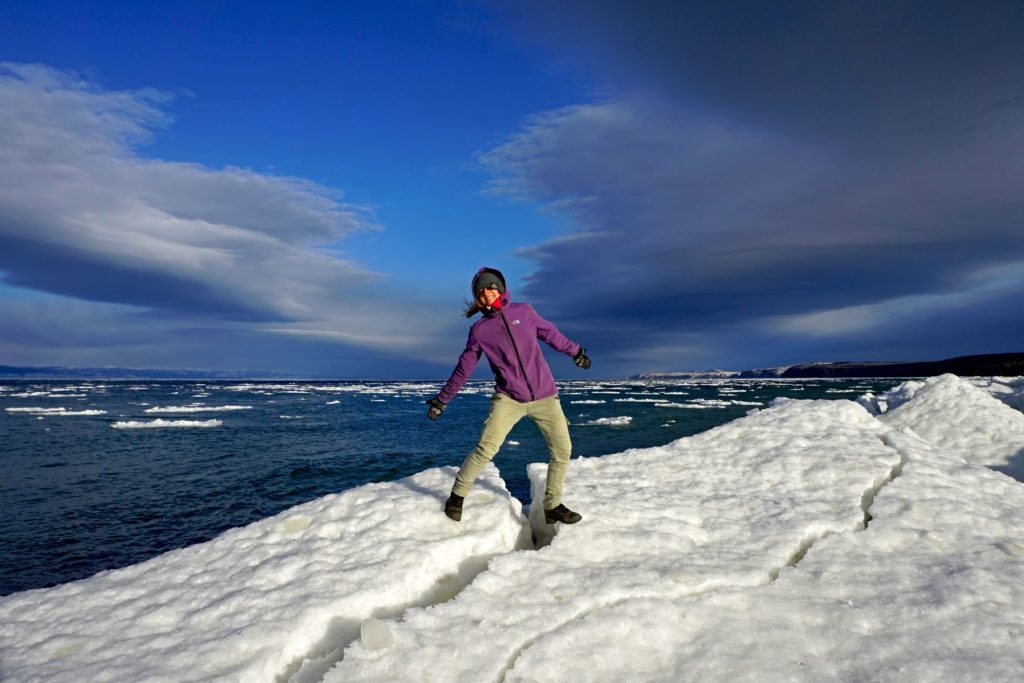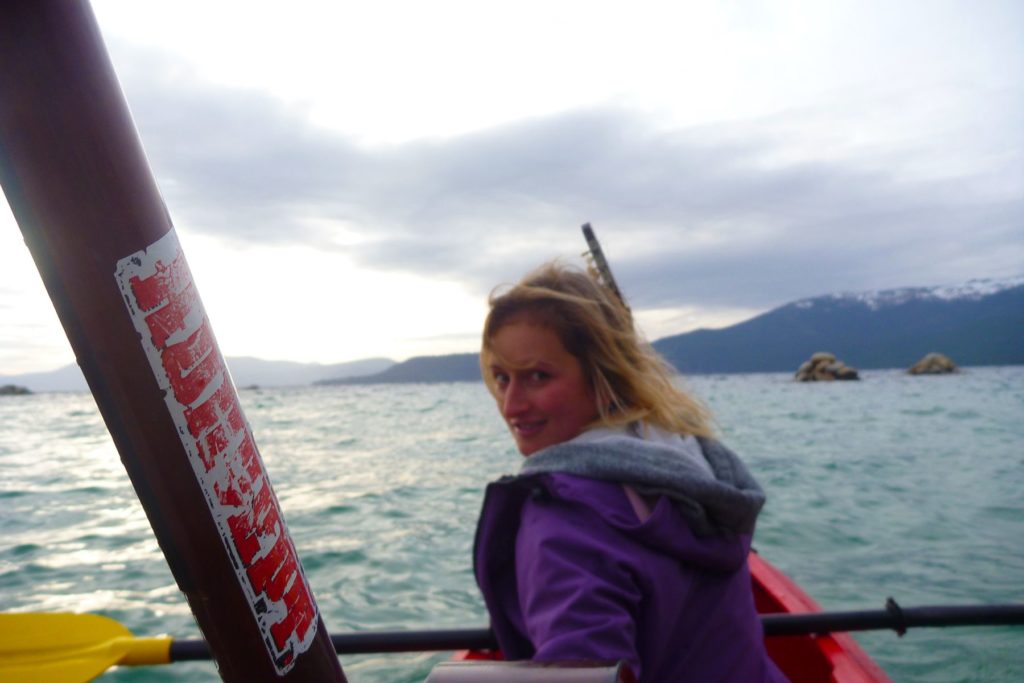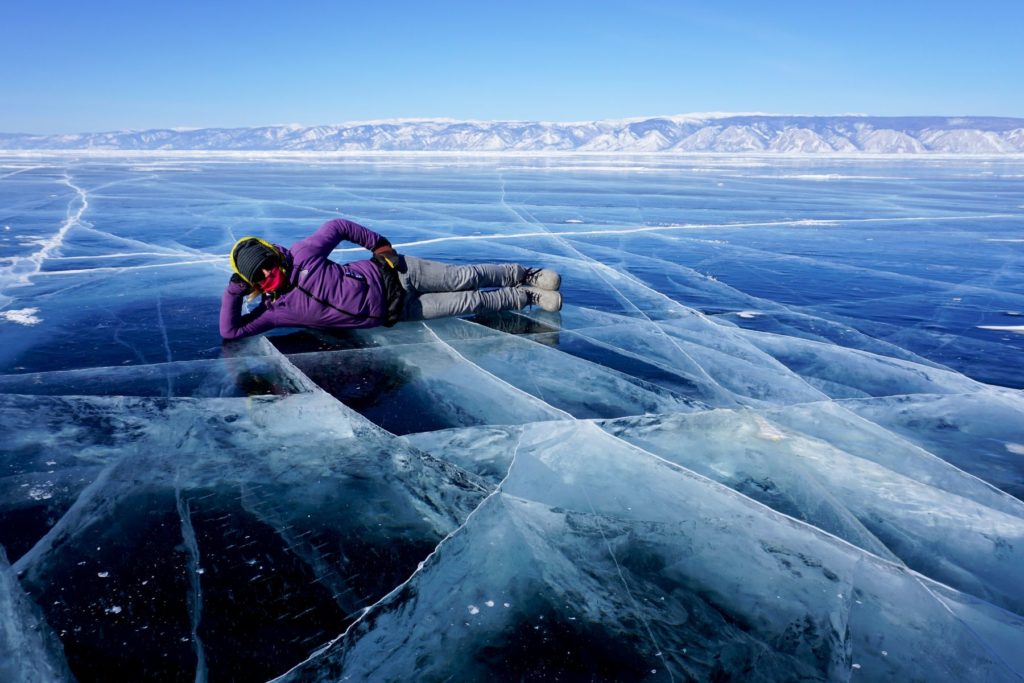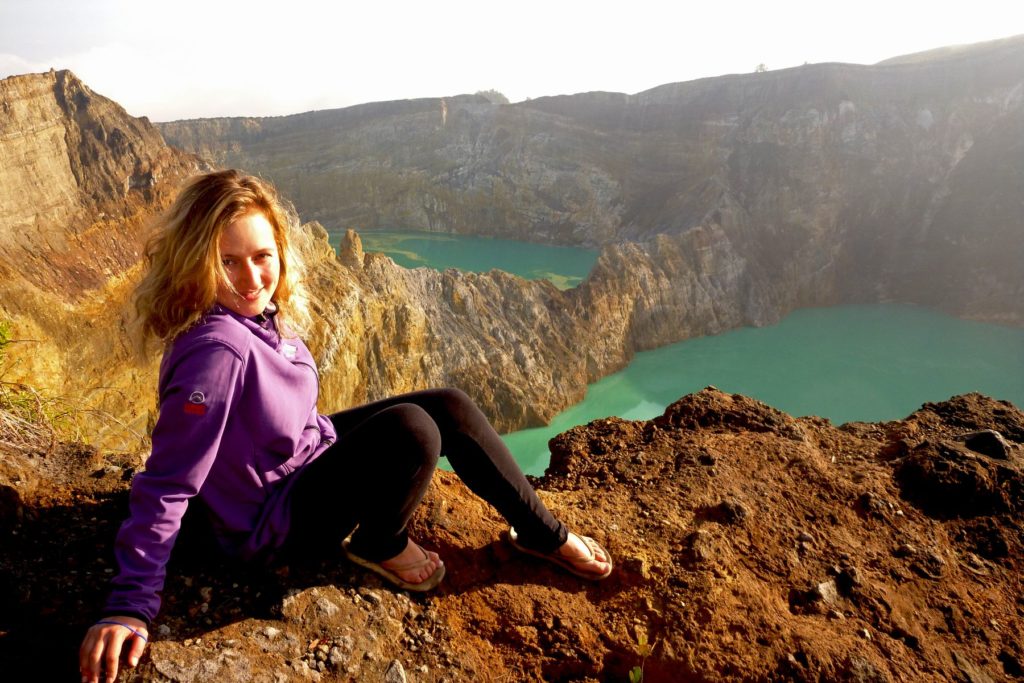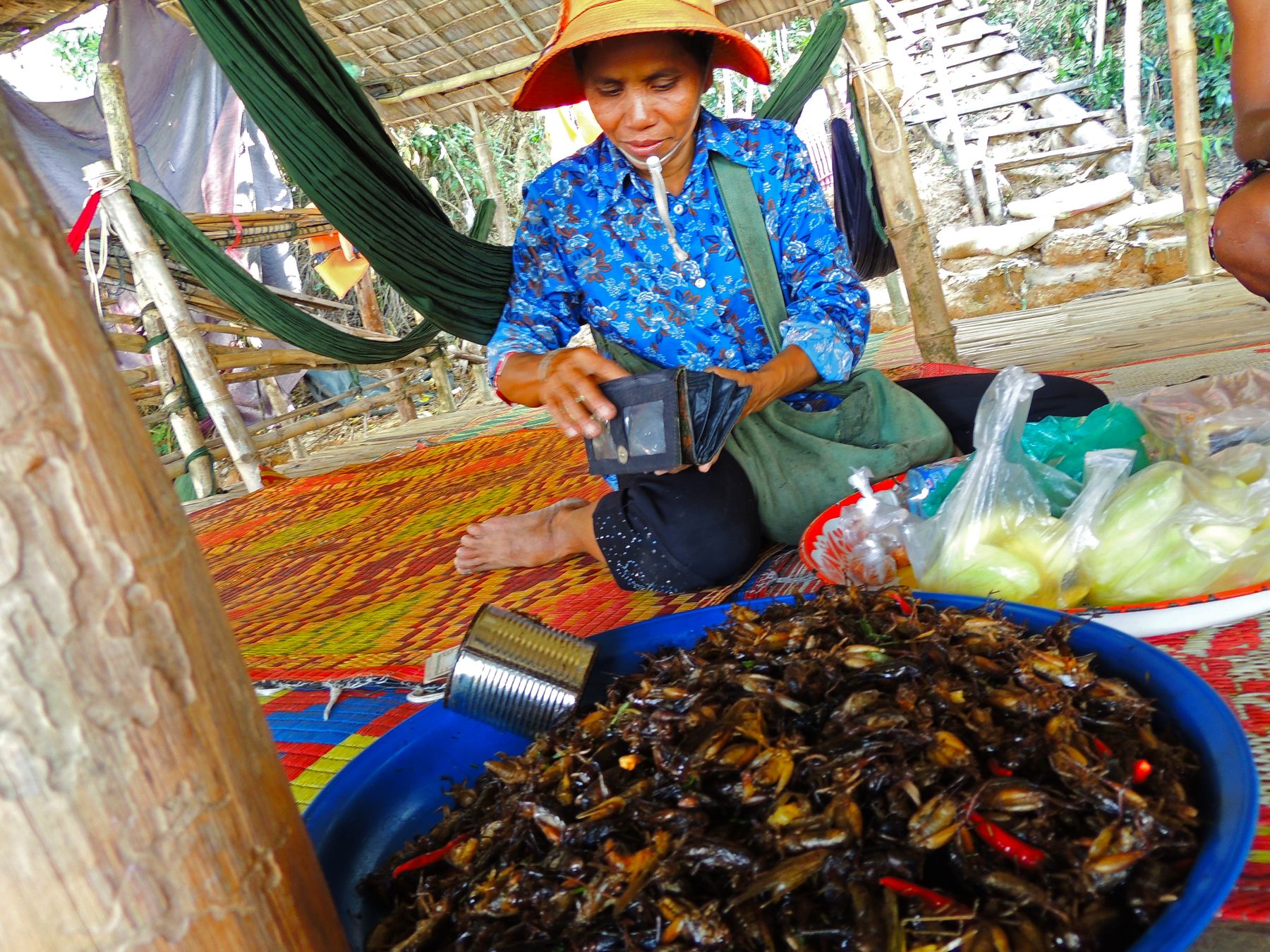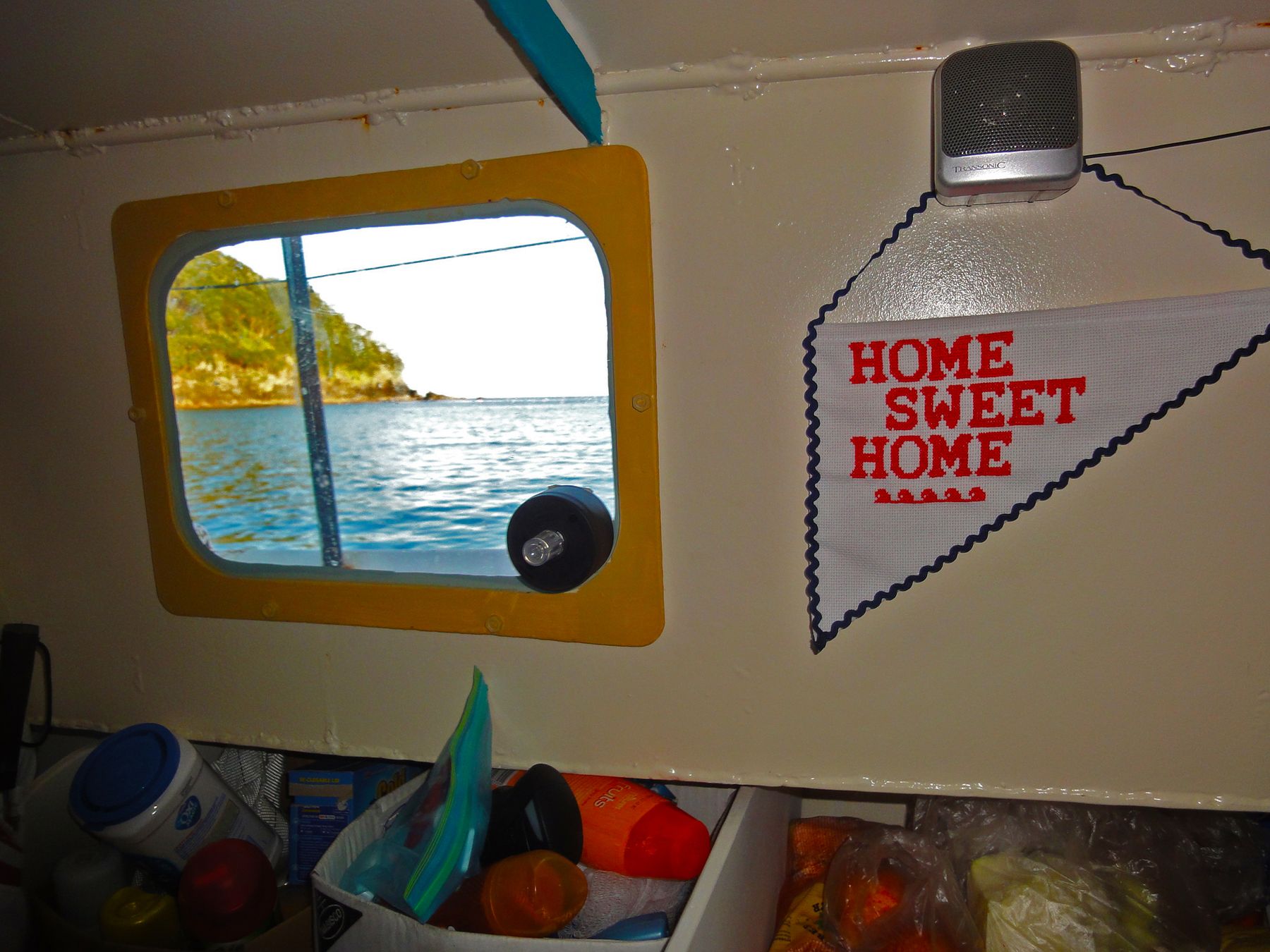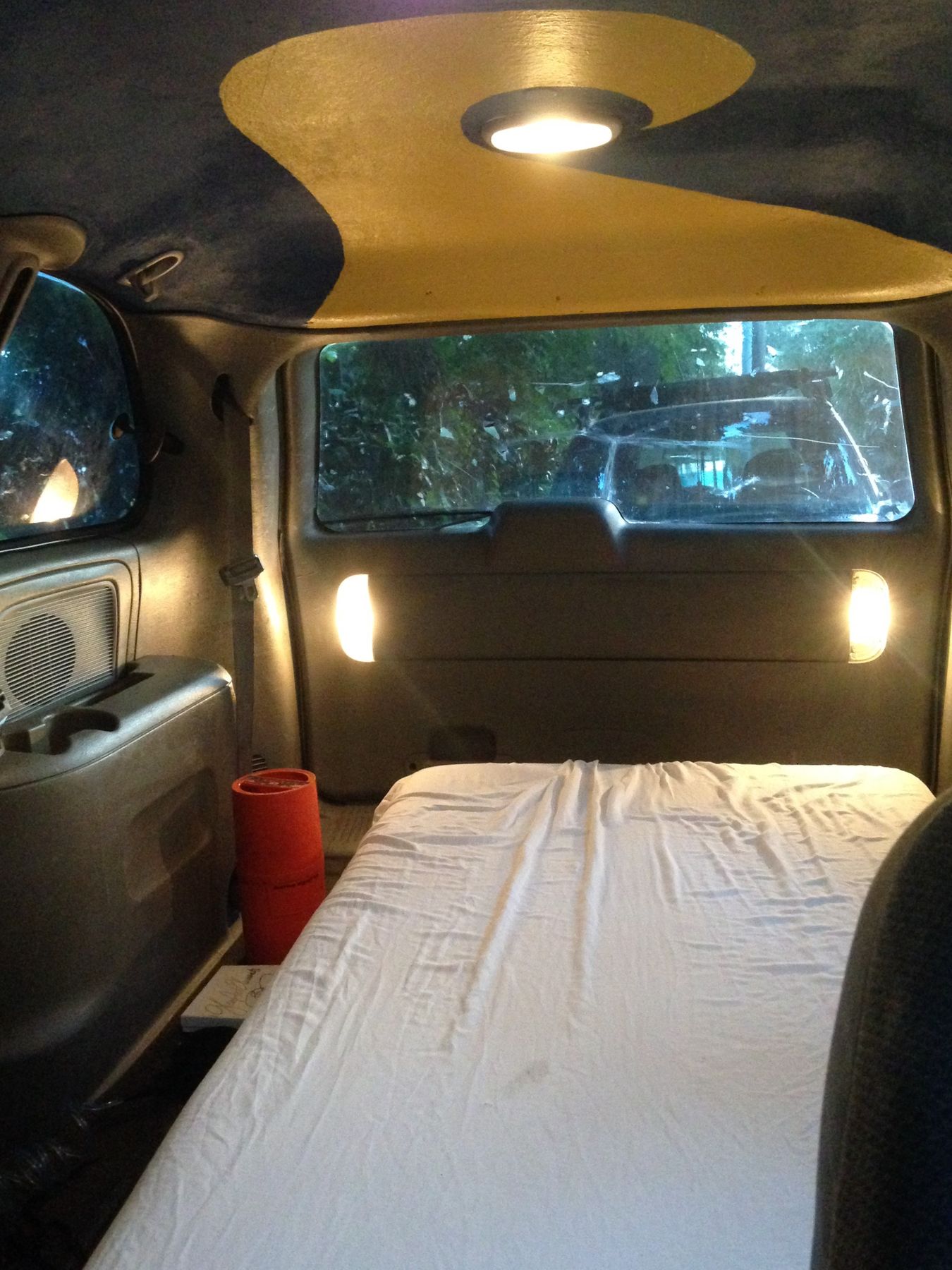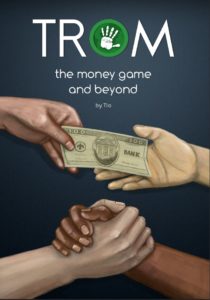How to Travel on a Budget
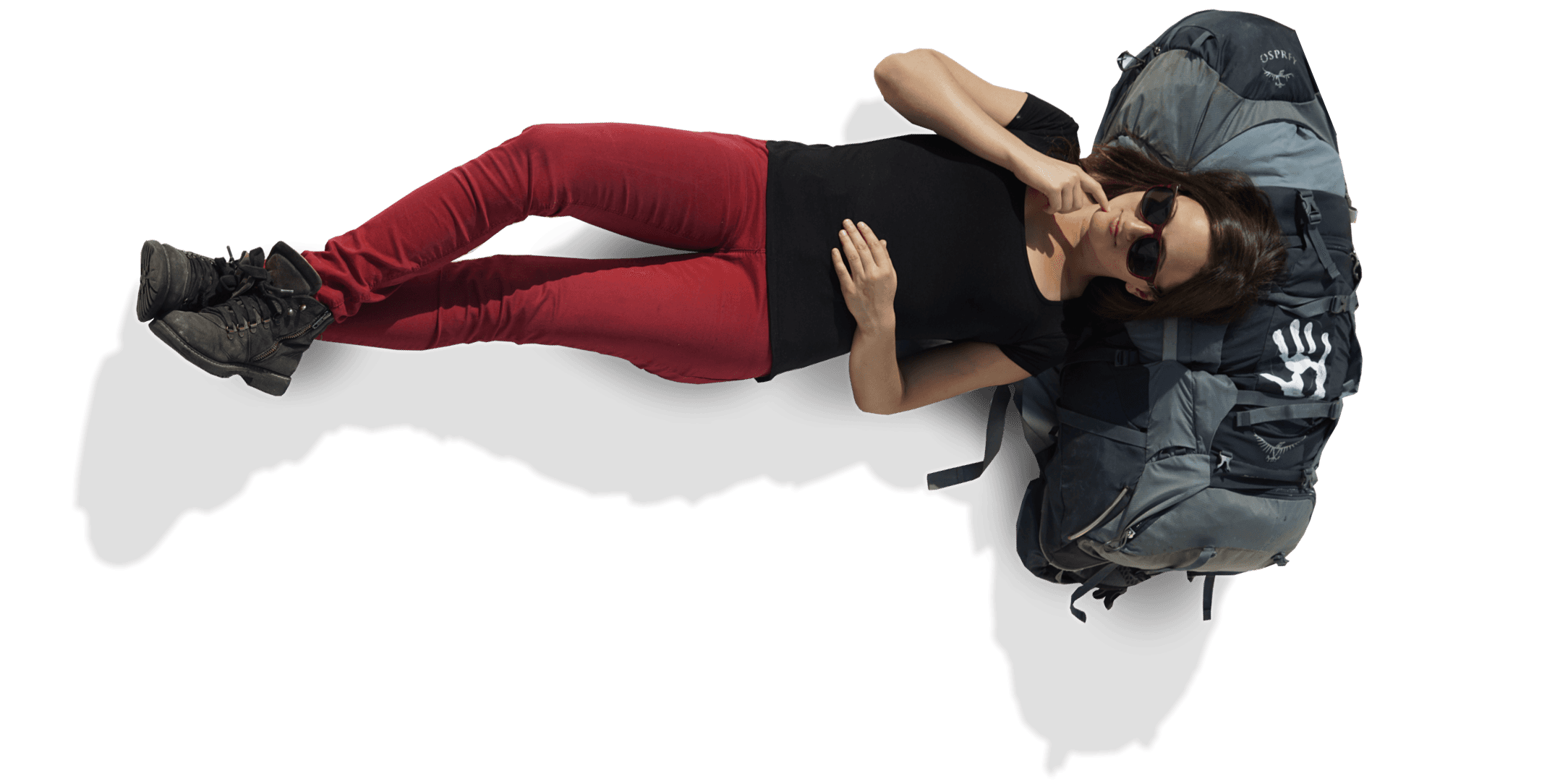
*Small note: I’m not one of those travelers that quit my “normal” life and sold everything to travel around the world. I never lived a “normal” life to begin with, or had much to sell. This page provides a personal example of how someone can save money and use it on long-term travel (or whatever else you may enjoy doing ;)).
I don’t work for money very often or for a very long time, but when I work, I work my ass off and I save almost every penny I earn. My most recent “real job” (if you can call it that) was in Hawaii. I worked as a waitress for seven months, saved about $20,000, quit and then traveled around the world for over three years on these savings.
When I run out of money again, I will work again, save again, quit again, then continue doing whatever I want to do on Earth. I call this the “job game” and I think it’s easier and more fun than having a career for money.
But what’s my secret? How can you save so much money as a waitress and how can you travel around the world on such a low budget?

Ever read that “1 latte a day” book by David Bach? (It describes how not having that 1 coffee a day can actually save you A LOT of money in the long run). I read a part of that book when I was about 17 and thought to myself, “well that’s obvious… Did that guy really have to write a whole book about this?”
I took that concept with me a long way. A couple of friends I met in Sri Lanka laughed at me for saving about $1.50 by taking two buses to the beach instead of a tuk-tuk. But my mentality was not that the difference between a bus and a tuk-tuk was $1.50, the difference was 1500%! The bus only cost 10 cents! I can go to the beach 15 times by bus for the same amount of money that I could go there once by tuk-tuk! Apply this to everything you spend money on and it will take you a long way if you’re not limited by time. Remember, I don’t have a “job,” “career” or “home” to come back to, so my traveling is usually not limited by time, it is limited by the money game and visa laws (another fun game).
By taking the bus to save money, I was able to come closer to understanding local life. I experienced local transportation and met a very nice local girl on a bus in Sri Lanka. We became friends and she invited me to her village in the beautiful rice-growing region in the center of the country. It was amazing- I got to see a part of Sri Lanka that I would never have found on my own, I got to experience real Sri Lankan culture, and I even got to stay with a family who accepted me with open arms. All because I took the bus.
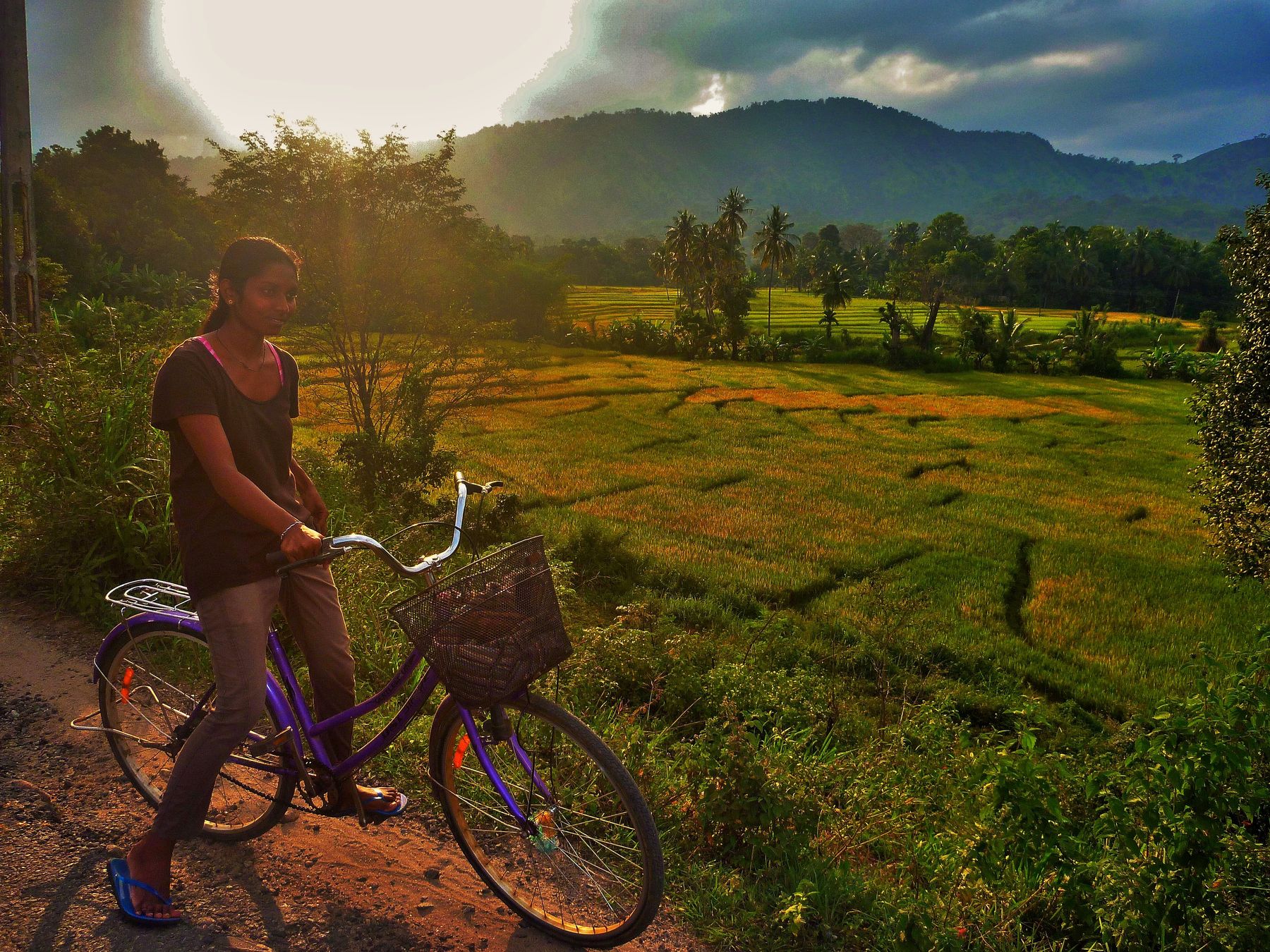
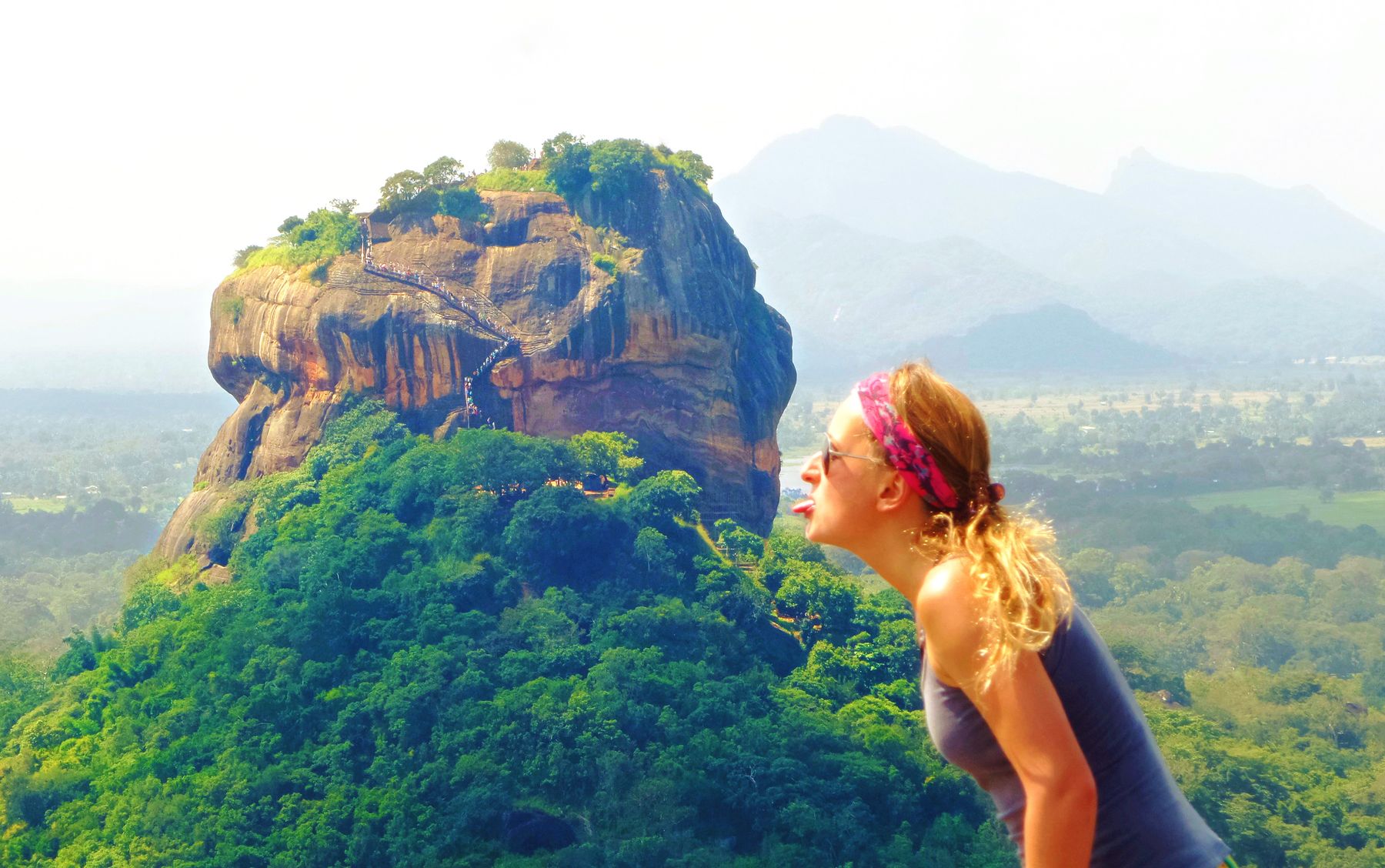
But lets break down what people spend money on…
1. Clothes
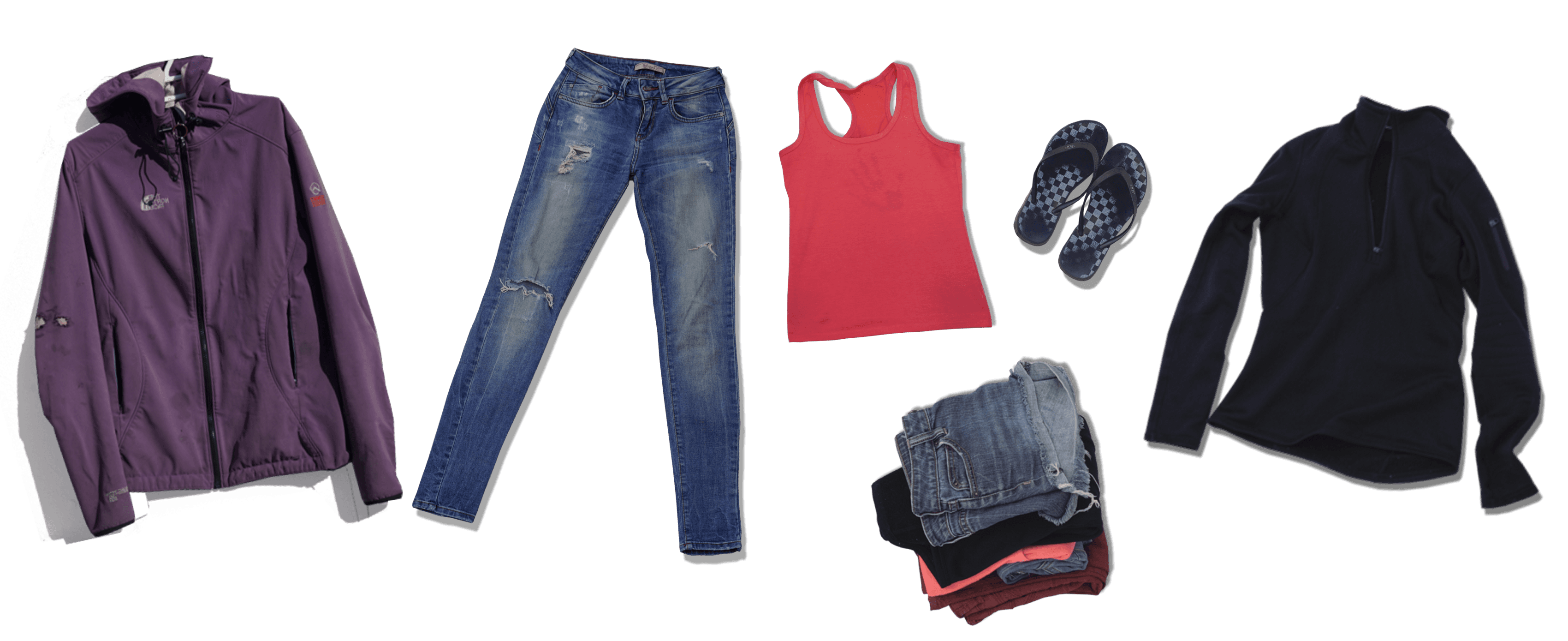
I hardly ever buy clothes, usually people just give me clothes :). If buying clothes is necessary, I try to go to the second-hand store first.
My friends like to make fun of me for wearing the same purple jacket for the past 10 or so years, in so many different places around the world.
The funny thing is that I didn’t even buy that jacket. Somebody had left it in a bar I worked in in Sydney and didn’t come back for it, so one of my coworkers gave it to me because I was the only person in that bar who was small enough to fit into it :). I almost didn’t take it, thinking, “that’s an ugly color,” but my coworker pointed out the quality of the jacket, so I took it and used it for the next 10+ years.
The jacket is a bit worn out now, it’s not as waterproof as it used to be (after two 2-month long sailing trips, snowboarding all over the world and god knows what else). Some of the zippers are broken and there are burns on the sleeves (I don’t even remember how that happened :)) but I still wore it running in -25° weather in Siberia and it worked just fine! Maybe North Face will sponsor me one day if my blog becomes popular :)… or just send me a new jacket :D.
So if you can, buy solid items that are made to last- this could save you money in the long run. Patagonia, for example, has a lifetime warranty on their products- that’s how you know they’re made to last. Osprey does as well for their backpacks. -But don’t take my word for it, do your own research!
And buy clothes for utility.
Think about it. What do you need clothes for? When I was a teenager, I loved shopping; I bought clothes to make me feel cool. Did they make me cool? No, I don’t think so.
As I grew older, I realized that the less I tried to impress people, the more impressed they were (and vice versa!). When I lived in Whistler, people were impressed by the fact that I had driven across America by myself at age 18 (they were not impressed by my pretty sweater). If I had spent more money on pretty sweaters, I would not have had enough money to drive across America.
One more point to consider. Look at the tag on your T-shirt. Where was it made?
Watch this.
And this.
Do you really want to contribute to modern day slavery?
2. Food
If you want to make your money last long, you can’t be too picky with what you eat. Don’t buy pesto if you’re not in Italy, don’t buy fresh tuna fish if you’re not by the ocean. Figure out what the locals eat and go with that.
Ok you don’t have to be super hardcore, just try applying the ‘utility’ concept to food as well.
I usually buy whatever fruits and vegetables happen to be cheap wherever I am + rice, beans, buckwheat, things like that. I cook whenever I can, and I don’t let any food go to waste.
When I see a freshly baked crispy cream doughnut, I think “yuumm,” but I also think, “this doughnut costs the same amount of money as a 10-hour train ride in Sri Lanka and does nothing good for my body.” So I try to minimize things like that.
I even kicked my chocolate habit after watching this video…
I don’t really want to eat chocolate knowing that there’s a high probability that the cocoa beans came from child slaves. I’ve lost the craving.
But if you don’t care about 12-year-old slaves who are beaten when they work too slowly or try to run away, not eating chocolate (and other crap that you don’t need) can benefit you personally as well! It turns out that APPLES are actually cheaper AND healthier than chocolate! Astonishing!
Getting rid of nonsensical cravings will benefit you in many ways.
3. Stuff
So far, we’ve covered lattes, clothing and food. What else? More things. Humans love hoarding all sorts of stuff.
One advantage to traveling is that you don’t want many “things” anymore. “Things” are not only a waste of money that could be used for a plane ticket, but also an inconvenience that you have to carry around. When you pick up and go, you don’t want to carry more shit- shit’s heavy!
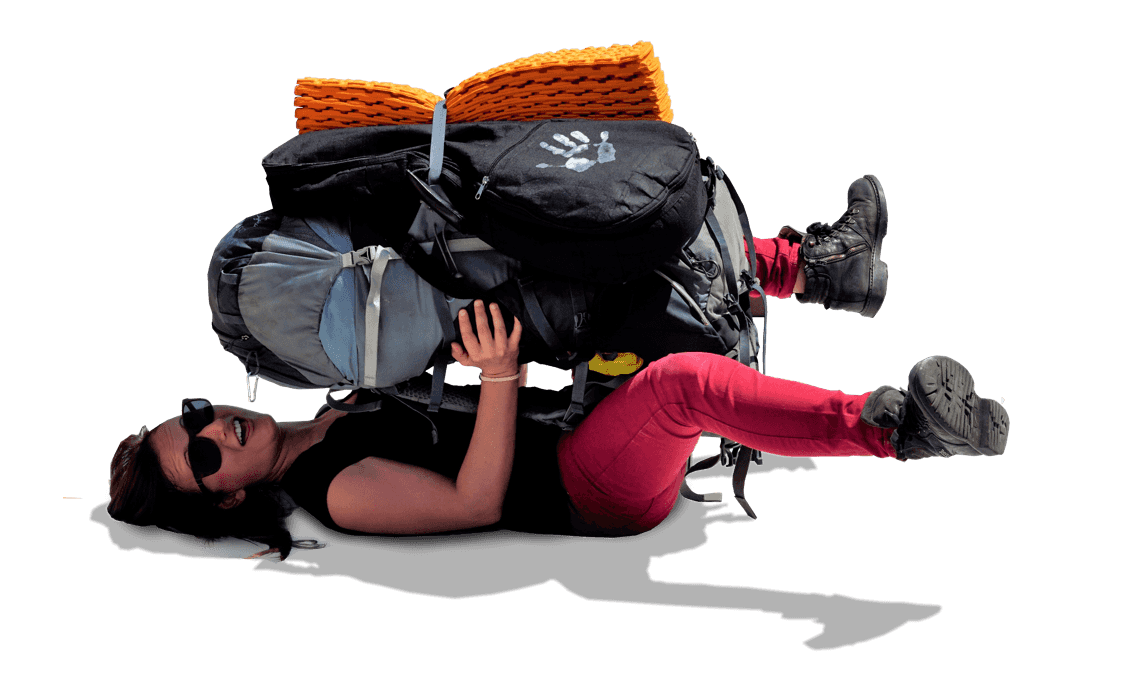
The less you have the better. So pick out what you really really need- and it feels damn good to get rid of all that excess crap.
When you do this for an extended amount of time, your relationship to these “things” changes. You learn to value experiences a lot more than “things.” – Experiences, education, relationships and yourself.
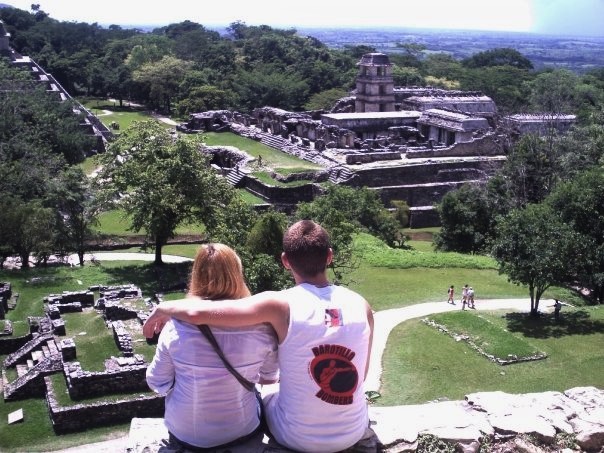
Palenque, Mexico
I got robbed of all of my valuable “things” once in Italy (including 1000 Swiss francs in cash and both of my passports). I was very upset for a few hours, but after I realized that I was okay, that nobody had hurt me or the person I was with, and that these “things” did not mean that much to me in the first place, I felt liberated from those few valuables. I felt a huge feeling of relief when I realized that nobody could rob me again because I had nothing! For the moment, I was free from “things” and from the idea that my life would collapse without these “things.”
Learning from that experience was a lot more valuable than any of the stuff that I lost, and I’m glad that it happened.
So think twice about everything you spend your money on. $10 is more than enough for decent accommodation in many different countries; therefore, one cocktail in Hawaii (or half of one in Australia) can cost as much as one entire night of accommodation somewhere else.
Actually, think 3 times. 1- “Do I really need this?” 2- “Do I really really need this? – Can this be replaced with something cheaper, healthier or more durable?” 3- Is this product a result of the exploitation of a living being or the environment? (Don’t make yourself too crazy with that one though, as most items are, unfortunately). Just think about it a little more and if you’re not sure, do some research.
Here’s one good resource to use: videoneat.com
It is important for people to take an initiative to learn about the world that we live in. What is the origin of all of these things that we’re buying? Where are the resources that make these products coming from? How are the resources extracted and processed? How are the products assembled and transported? Why is this “thing” so cheap (or not so cheap)?
People often call me a “free spirit” – a term that has little meaning to me, kind of like “finding yourself.” Just like “finding yourself,” being a “free spirit” just means understanding your environment, how it affects you and what you can do about that. The more you understand (through research, relevant education and first-hand experiences), the more “free” you will become.
4. Shelter
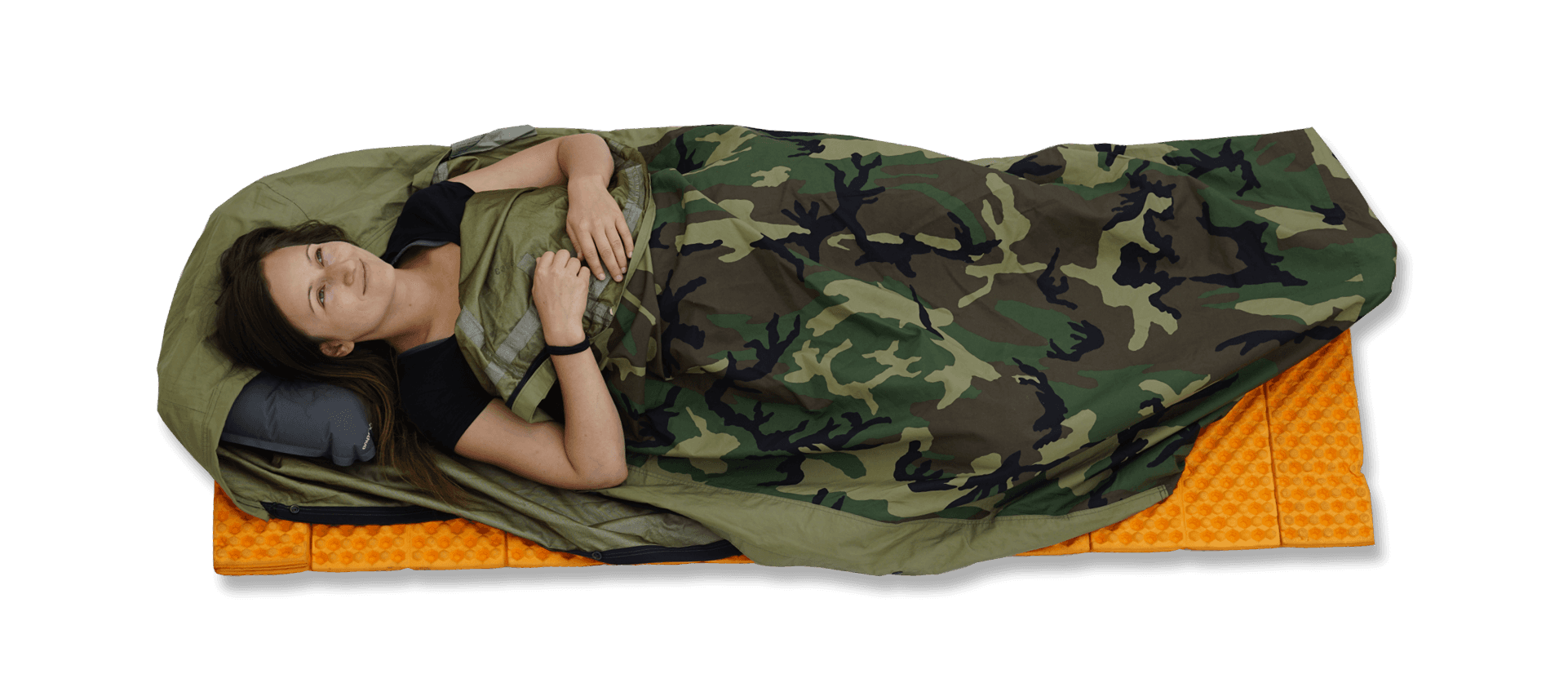
You can spend the majority of the money you earn on a pretty nest or you can find something cheaper. That doesn’t mean that you have to live in a complete hole, just be wise with the choices that you make.
A lot of people tell me that they wish they could live like me, but they cannot because they have a mortgage to pay. But if you really want to live like me, then you can sell that house and surely you will have way more money than I ever did- to live “like me.” I’ve never owned any property to begin with, so you’re already ahead of the game.
I understand that there are more psychological barriers to selling the nest and living like me than anything else. So, think about what you really want. If you really want to live like me, you have to analyze these psychological barriers, not the monetary cost of traveling. I could have spent all of the money that I used in the last 12 years of traveling on a down payment for a small apartment… And I would surely still be in debt right now. But I don’t want to do that.
I also understand that not everybody wants to live like me, some people love their nests and think I’m fucking crazy. And that’s fine as well, we’re not all vagabond souls. I really don’t care if people think I’m crazy. I just don’t like it when people feel trapped in their lifestyles and they come to me, saying that they wish they could live like me but they can’t because they don’t have enough money or because they have a mortgage or car payments (I’m talking about people from privileged countries here by the way… if you come from a poor country that’s a whole other story… I’ll talk about that on a different day).
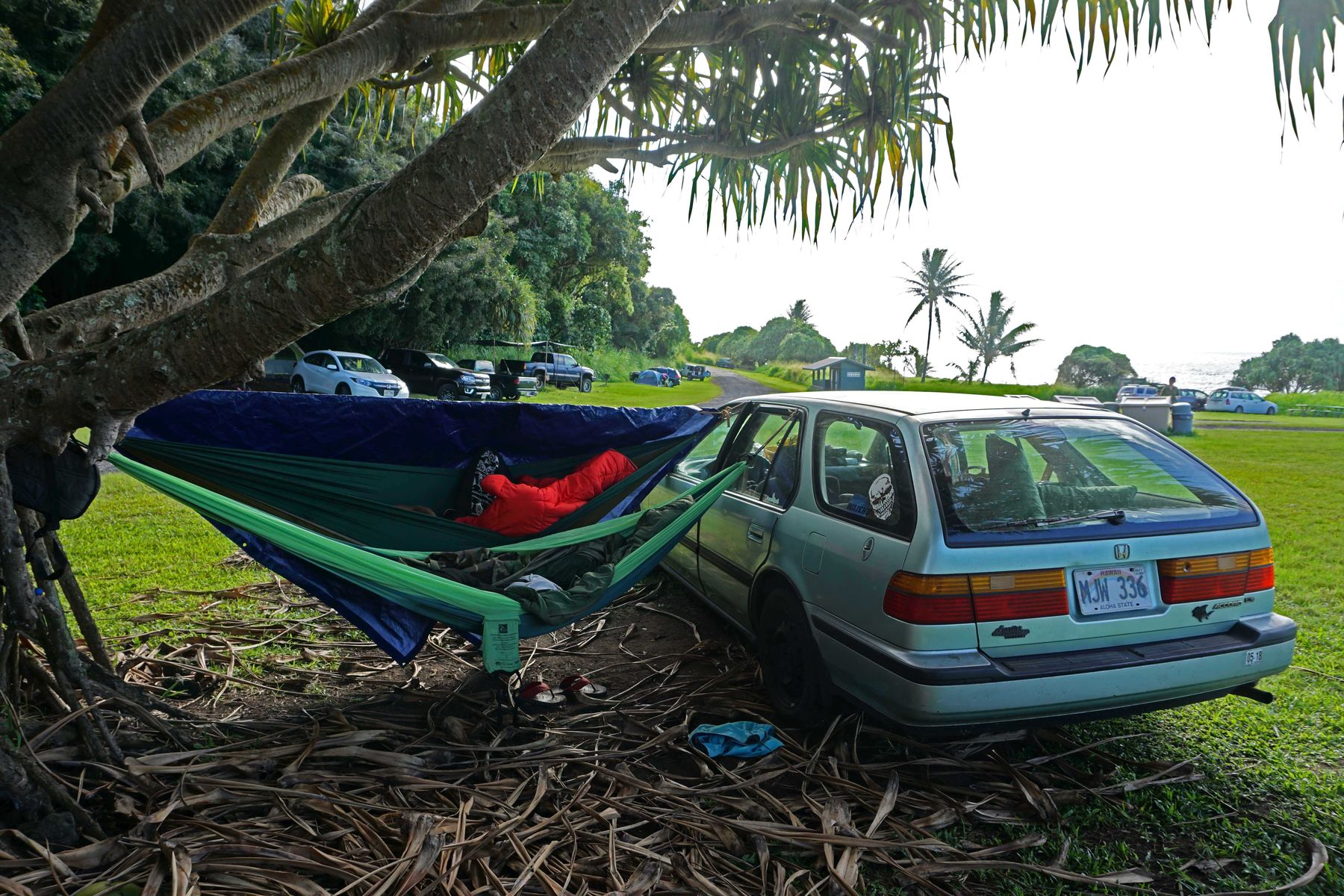
Some people say things like, “I really want to travel. But I can’t do it until I can make sure I have a stable income coming in before I take off.” Or even worse, “I will buy this house/apartment/whatever, and then I will rent it out so that I can have money coming in to travel with.” In my honest opinion, this kind of thinking is a trap– especially if you can barely afford the mortgage in the first place. You buy the house and then you will very likely be on the same page as my friends who say stuff like, “I want to travel but I can’t because I have to pay for this mortgage”… Once you realize that the people that rent from you won’t cover the mortgage… or are not stable enough… or you have to continuously fix stuff in the house… or…or … there are always excuses. If you want to “break free” you have to recognize that this “freedom” has nothing to do with money- it’s all about your mentality.
I have a couple of friends from Siberia who love to travel but have no stable income and very little money. So they hitched their way from Siberia to Asia, selling handmade postcards on the street for money. These are hardcore travelers, they’re even cheaper than me. They’re so frugal that they only buy phone credit for the days that they absolutely need it- and phone credit costs 9 rubles- that’s about 15 cents! I saw them put 15 cents of phone credit on their phone for the one day they needed it :).
So it’s clearly psychological. Just sell postcards. That’s all you really need ;)
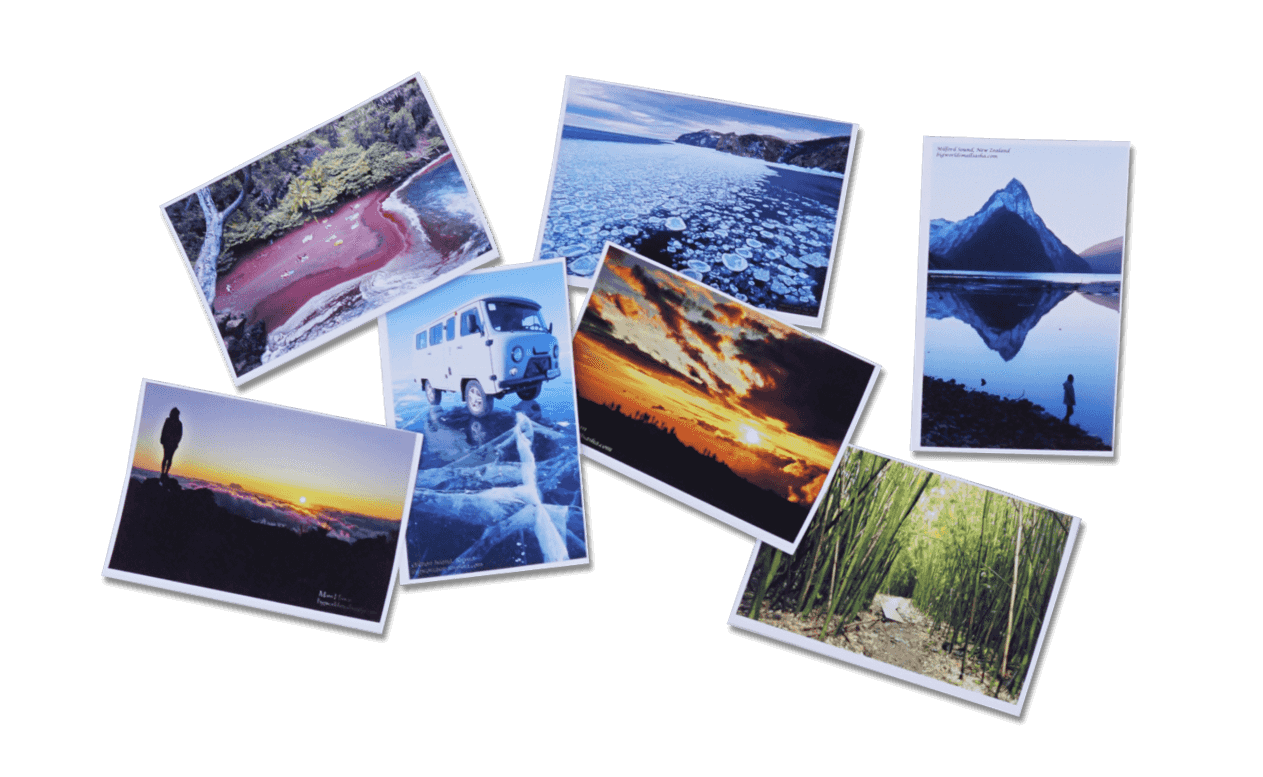
5. Transportation
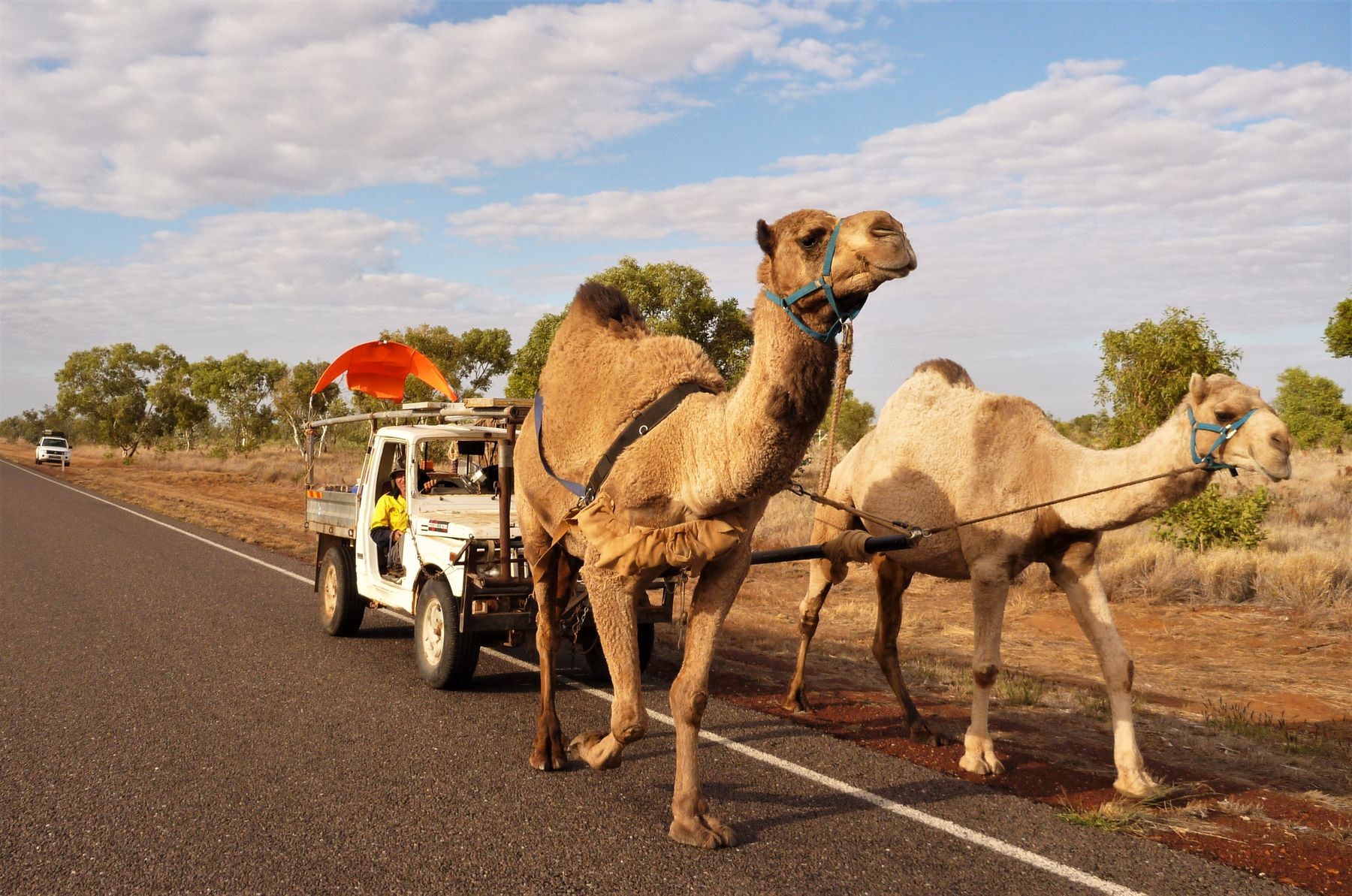
I will only buy a vehicle if it is very difficult to get around without one (or if it doubles up as accommodation). Buy a vehicle for utility, not for how cool you think it makes you- because it doesn’t.
In the US, it’s very easy to buy and sell used cars; I’ve made a small profit from almost every vehicle that I’ve owned. Once, I bought an 89’ Corolla for $420, drove it from Utah to Vegas, all around the Grand Canyon, to LA and San Diego, back to Utah, then up through Oregon and Washington State to Vancouver, where it could barely make it uphill and I had to keep the window open to make sure I didn’t die from carbon monoxide poisoning… And then I sold it in Vancouver for the same price I bought it for! $420 ;).
I could never have had it all- both the $20,000 car and the experiences. The choice is yours.
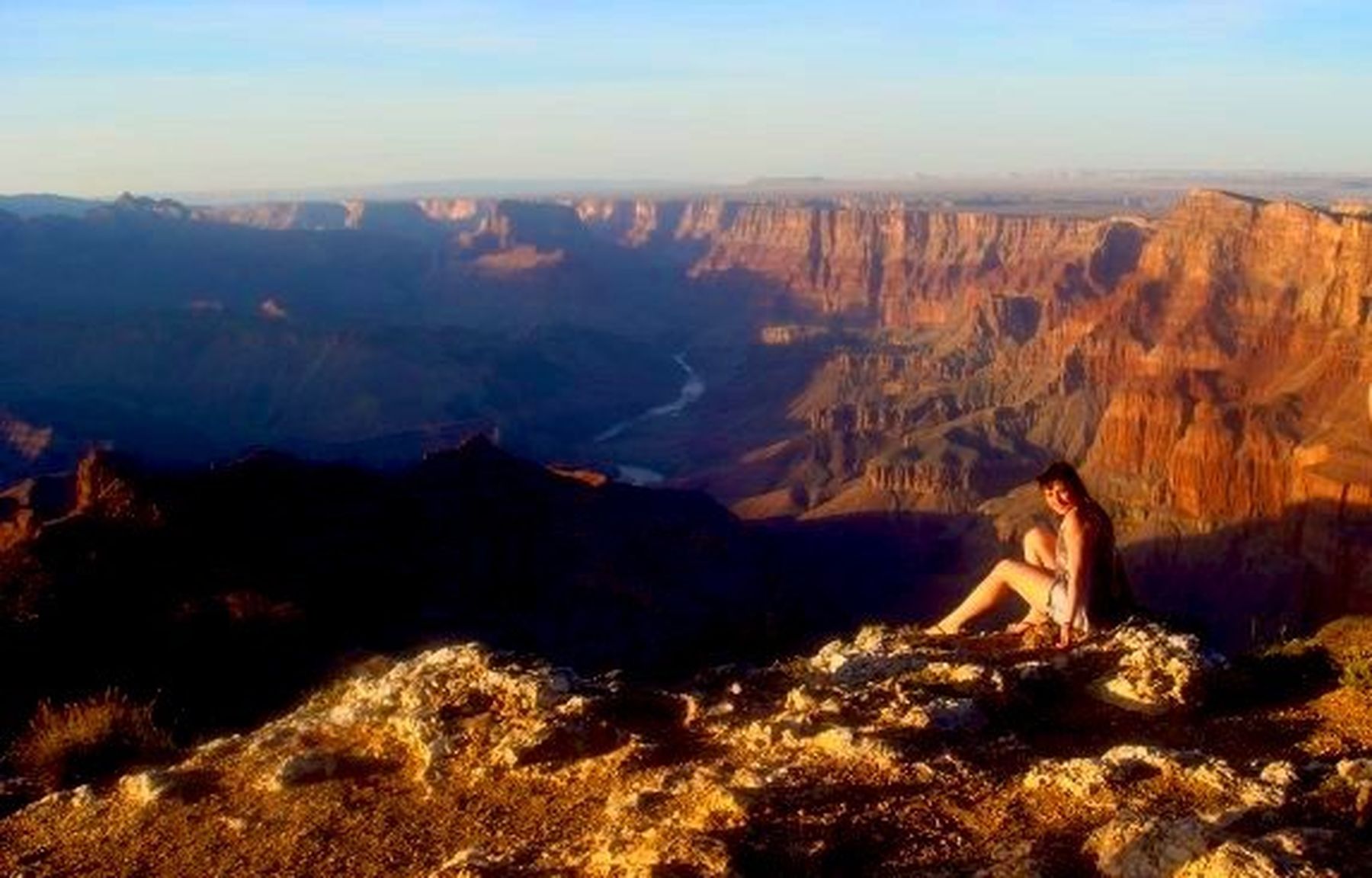
6. Entertainment
If you’re trying to save money while playing the job game, then just go hiking or to the beach/park to let your mind calm down from the hard work, instead of spending money on things that you don’t really need. Think about the adventure that lays ahead and how awesome life will be. Again, just think twice about the long term benefits you would gain from entertainment vs. traveling (or whatever you’re saving for). Think- what is the point? What is the point of watching a game of football? What is the point of watching this movie? This documentary? This concert? Traveling? What do you want to gain from this? What do you want to gain from life?
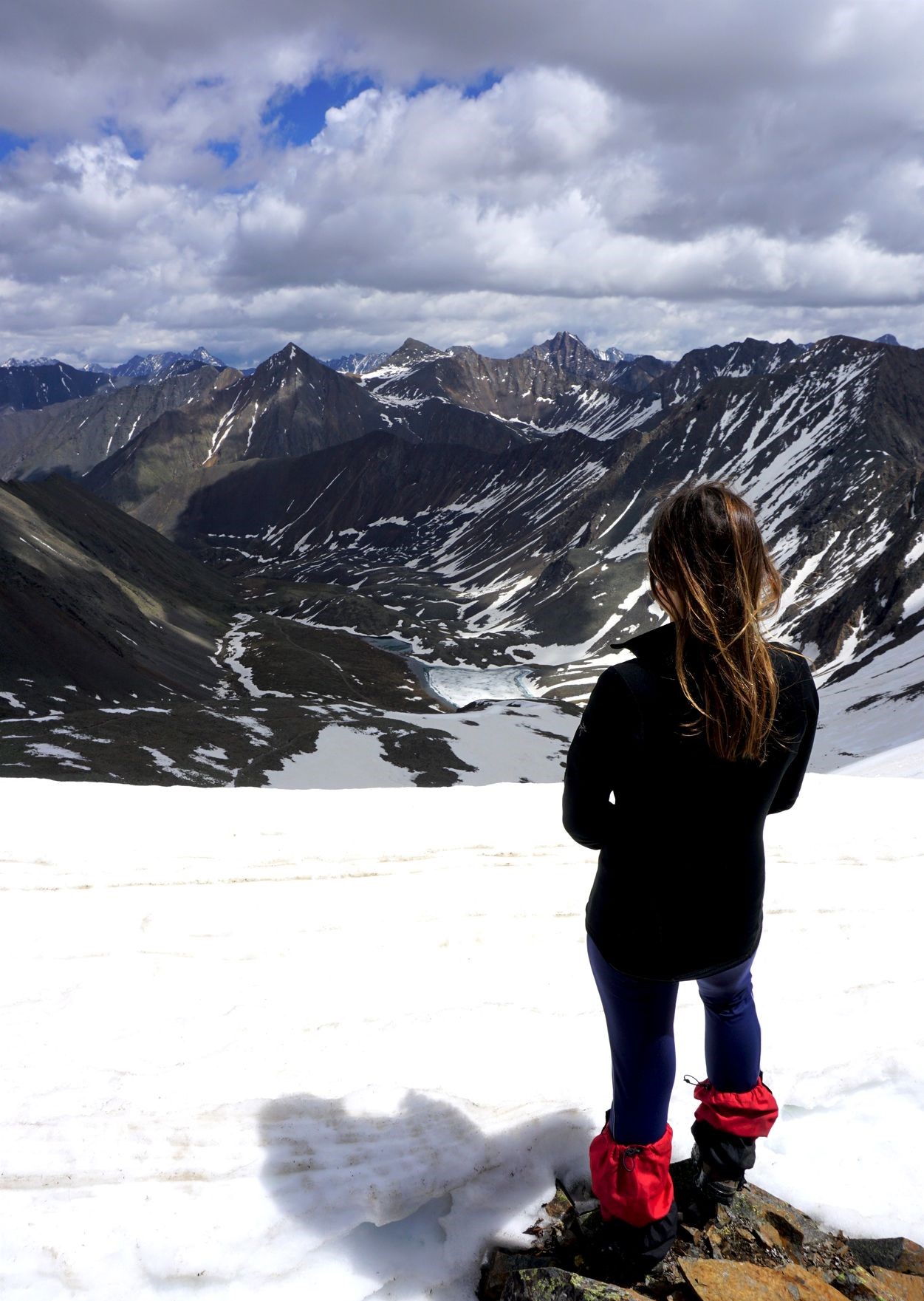
One more point…
7. Healthcare
I don’t buy health insurance; the US health system is so fucked up that I refuse to participate. In Russia, we get “free” healthcare.
Actually...
It’s all fucked up- from clothes, to food, to electronics, to entertainment, to healthcare… so much of it is just insane.
We live in a delusional society with a flawed value system driven by consumerism- this is detrimental not only to your personal self but to our entire planet. Recognizing this is step one. Doing something about this in your own life is step two. Making ethical consumer choices isn’t going to save the world, but it could very likely help you save some money, possibly travel, think deeper about the world we live in and live a healthier lifestyle.
I’m no saint, not everything I buy is 100% “ethical” and I haven’t escaped the system. But I have minimized my participation.
That is how I save money to travel around the world.
One more video:
(this one is short and uplifting ;))
